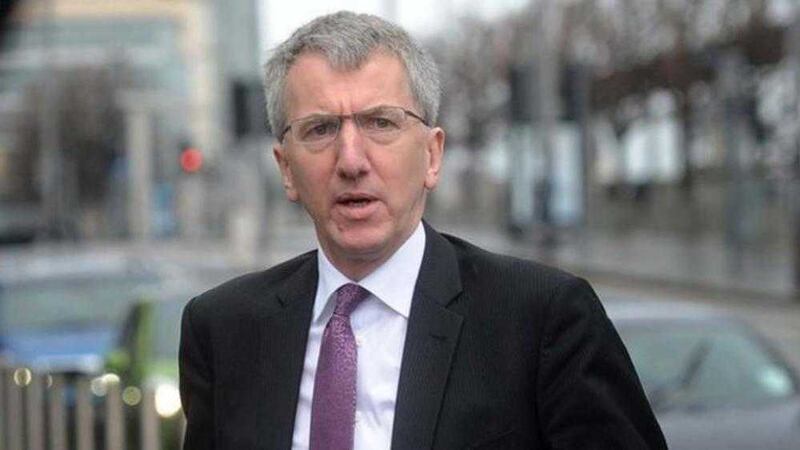A DUP-led department delayed releasing documents about the failed Renewable Heating Incentive (RHI) scheme, finance minister Mairtin O Muilleoir said.
He said he wanted to see more urgency from Simon Hamilton's Department for the Economy and vowed he would not accept proposals which did not represent value for money.
Without action, up to £600 million could be "haemorrhaged" from the public purse.
Additional money from the Treasury to fund the haphazard and chaotic Renewable Heat Incentive (RHI) may also be in doubt, the spending chief added.
Mr O Muilleoir said: "I won't be accepting any solution to the RHI which does not represent value for money and brings to an end this haemorrhaging of the public purse."
Arlene Foster has defied calls to step down as First Minister while the matter is investigated.
The RHI was supposed to offer a proportion of the cost businesses incurred to run eco-friendly boilers, but it ended up paying significantly more than the price of fuel, enabling applicants to "burn to earn" - generating free heat and making a profit as they did it.
Claims of widespread abuse include a farmer allegedly set to pocket around £1 million in the next two decades for heating an empty shed. Hundreds of people may have used fuel in an ineligible way, Mr O Muilleoir added.
Mrs Foster was the minister in charge of the scheme at its inception. The Department for the Economy has said it was exploring cost control options to address "unacceptable" levels of potential public overspend on subsidies.
Mr O Muilleoir said his department set aside £30 million for the 20-year scheme this year. If that continued without corrective action the cost would rise to £600 million.
The minister warned he would not accept any proposal which did not recoup enough money.
"I will be testing it rigorously."
He warned that the Treasury was watching closely.
"Don't think for a moment that the Treasury is going to sit there and put money into a failed scheme which has failed to meet its objectives, which was introduced in a haphazard and chaotic fashion and which has allegations of fraud.
"Don't think that the Treasury will sit down and say that £600 million is OK. It is exactly the opposite. The Treasury is going to ask why we are paying for this scheme which has so many questions over it.
"This is a grave problem."
He said he raised the issue with the Department for the Economy when he became finance minister but it was not until last Friday, after the recent airing of a BBC investigation, that papers landed on his desk.
He said the proposals were not worked up enough.
"They need much more probing and interrogation. There has not been the urgency that I want to see around this issue."
He added: "We need to move swiftly on it."
An Economy Department statement said: "In regards the cost of the RHI scheme, the comptroller and auditor general's report estimated the 20-year costs of the scheme if nothing is done to be £1,150 million.
"C&AG stated this involves 'a number of uncertainties' and represents 'the best estimate of the worst case'.
"Based on a forecasted 3% Barnett share of the allocation for the GB scheme, the projected available budget is £660 million. Based on those published figures, the maximum burden on the Northern Ireland budget would be £490m.
"The department has been developing proposals for changes to RHI which, if accepted, could lead to a significant reduction in future costs to the Northern Ireland Executive.
"This has required detailed discussion including legal advice and further engagement with the European Commission given the scheme received approval within the State Aid regime.
"The Department of Finance's role is to assess and approve the Economy Department's proposals based on value for money, propriety and regularity criteria."







